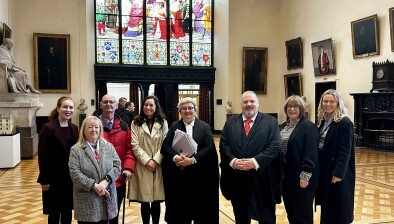Councils have absolute duty to provide suitable temporary homeless accommodation, Court of Session finds

The Court of Session has ruled that local authorities are under an absolute legal duty to provide suitable temporary accommodation for homeless households in Scotland, that must meet the needs of disabled children.
The central issue in the judicial review of X v Glasgow City Council was whether a local authority was under an absolute legal obligation to provide accommodation suitable for occupation by a homeless household, taking into account the needs of a household.
The petitioner said it was. The respondent said it was not: the respondent had a discretion to balance the needs of the household against other demands on the respondent’s finite resources.
Lord Ericht found in favour of the petitioner. The case concerned The Homeless Persons (Unsuitable Accommodation) (Scotland) Order 2014, the Housing (Scotland) Act 1987 and the Equality Act 2010.
The petitioner was represented by GLC’s solicitor advocate, Mike Dailly, instructed by Govanhill Law Centre with Laura McDonagh, partner, Drummond Miller LLP as Edinburgh agents. The respondent was represented by Graham Middleton, advocate, instructed by GCC with Harper Macleod LLP as Edinburgh agents.
GLC said it believes the decision is one of the most significant reported homelessness decisions in Scotland in the last 20 years.
Wendy Malloy, the law centre’s prevention of homelessness manager, said: “This is an excellent decision in favour of our client, but this will also impact more widely for all of the other homeless families affected in the same way in Glasgow and Scotland. Many large families are being kept in temporary accommodation far too long due to a lack of suitably sized permanent housing. It is clear from this case that the needs of these families and especially those with disabled children cannot be ignored.”
With respect to duties under the 1987 Act and 2014 Order Lord Ericht said: “The issue in this case is whether section 29 taken together with Article 4(1) (b) constitute an absolute duty on the respondent, or whether the respondent has the freedom not to give effect to these provisions.”
He added: “Section 29 states the local authority ‘shall secure that accommodation is made available’. Article 4 of the 2014 Order states that ‘in all circumstances, accommodation is unsuitable if [the circumstances in 4 (a) (b) or (c) apply]’. In my view, the specific and precise wording of these provisions is a strong indication that they should be interpreted as imposing an obligation of an absolute character.”
The judge went on: “Accordingly, I find that the respondent is under an absolute duty to provide temporary accommodation to the petitioner which is suitable for occupation by the petitioner’s household, taking into account the additional support needs of the petitioner’s son. To put it in another way, the respondent is under an absolute duty to provide a five apartment property.”
Lord Ericht said: “As this duty is an absolute one, the respondent is not entitled to avoid compliance with its duty for reasons such as those set out in its letter of 10 August 2021 i.e. that it is reliant on third party providers or that there were significant pressures on resources. As Lord Nicholls made clear in the passage quoted above, a local authority is obliged to comply with an absolute duty regardless of whether or not it would prefer to spend its money otherwise: the authority has no choice.”







